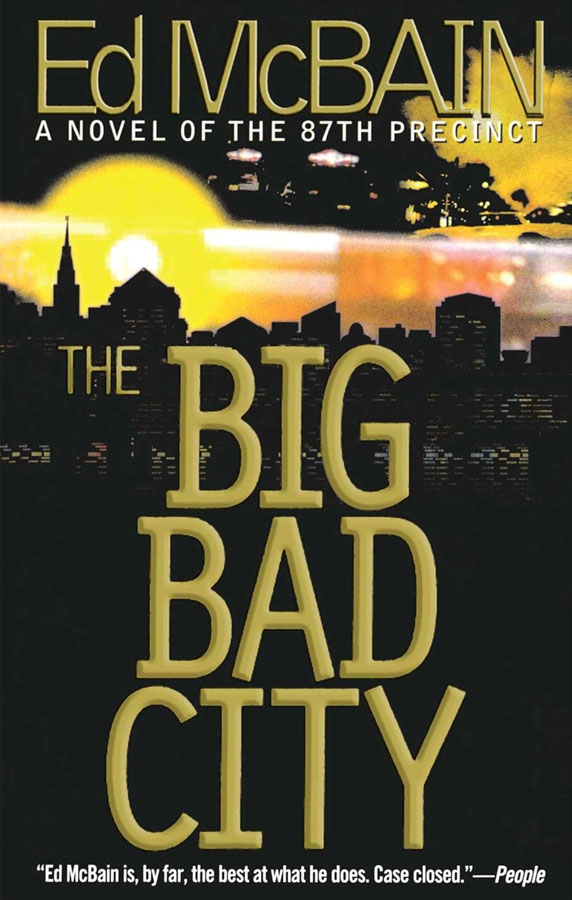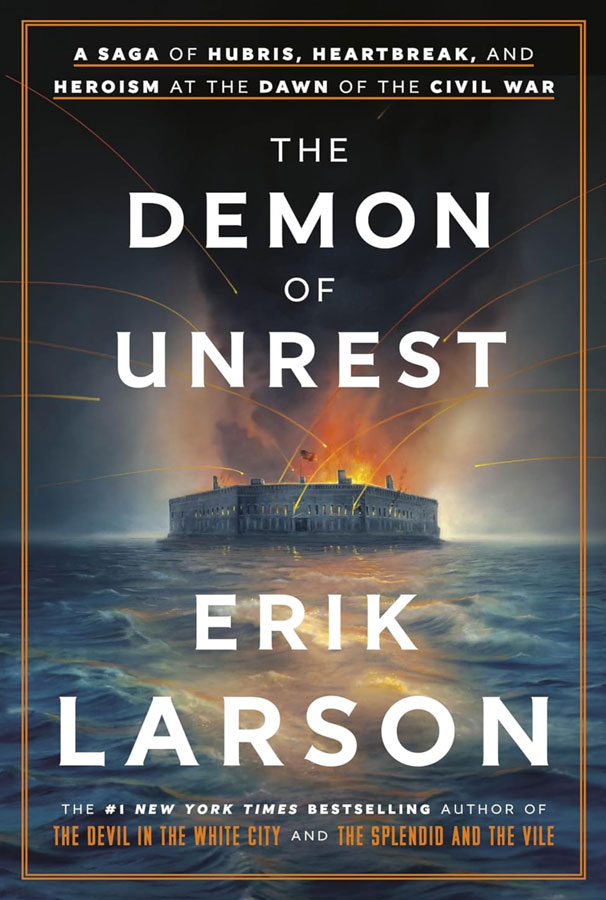Today’s Post by Joe Farace
You know you’ve read a good book when you turn the last page and feel a little as if you have lost a friend.—Paul Sweeney
Counting books. It’s been several years since I started keeping track of all the books I read during the year and adding them to a list in my daily journal. It all started when someone on Twitter, where I no longer post, suggesting I might read 50 books during the year. So I started keeping a log and during that first year read fifty-plus books so I was pleased. Over the years since, I’ve occasionally hit 70 books during the year but for 2024 that number is 57. I might mention that my count of “books read” does not include any books that I previously read and am re-reading.
Let me tell you about a couple of books I’ve read recently, one old and one new…
 This is the 46th book of the 52 books Ed McBain wrote about The 87th Precinct. McBain’s legal name was Evan Hunter and he wrote many books under that name including The Blackboard Jungle. However he was born as Salvatore Albert Lombino. McBain wrote the first 87th Precinct novel, Cop Hater, in 1956 and the last, Fiddlers, in 2005, the year he passed away. The ending of Fiddlers includes a cliffhanger I think was the author’s way of messing with his readers, Unlike Robert B. Parker’s Spenser character, there have been no continuation novels in the 87th Precinct series to end the guessing games of what happens next after Fiddlers.
This is the 46th book of the 52 books Ed McBain wrote about The 87th Precinct. McBain’s legal name was Evan Hunter and he wrote many books under that name including The Blackboard Jungle. However he was born as Salvatore Albert Lombino. McBain wrote the first 87th Precinct novel, Cop Hater, in 1956 and the last, Fiddlers, in 2005, the year he passed away. The ending of Fiddlers includes a cliffhanger I think was the author’s way of messing with his readers, Unlike Robert B. Parker’s Spenser character, there have been no continuation novels in the 87th Precinct series to end the guessing games of what happens next after Fiddlers.
As Evan Hunter he also wrote screenplays, including one for Alfred Hitchcock’s The Birds and one of my favorite underrated moves, Strangers When we Meet based on his novel. Hunter’s McBain novels were widely beloved and Akira Kurosawa’s 1956 film High and Low was based on the 1959 87th Precinct novel Kings Ransom. There is a wonderfully funny and clever 1972 movie called Fuzz that’s based on two of McBain’s 87th Precinct novels and has a screenplay from Evan Hunter! One question I’ve had for a long time is whether the character known as McBain in Sergio Leone’s Once Upon a Time in the West—that some have called the best Western film ever made—is named for Ed McBain. I like to think it was.
Recently, when I ran out of fiction to read, I dove into my personal library and picked up a copy of 1999’s The Big Bad City that has a beautiful gold foil cover. (His 2000 follow-up, The Last Dance, has a silver foil cover.) McBain is a master of the wry and occasionally, in later years, sarcastic, mystery novel genre that’s known as the Police Procedural. This book weaves three story lines, involving many of the different detectives in the precinct, but, like all novels in the series, mainly focused on one— Steve Carella. The main story-line concerns the murder of a young nun and has a bunch of twists and Rashomon-like turns. There’s also a sympathetic, if I can use the word, plot about a burglar known as The Cookie Boy; He leaves fresh baked—by himself—chocolate chip cookies after he robs someone’s home. The ribbon around the whole novel is about a criminal who murdered Carella’s father and got off because of an inept district attorney and decides to kill Carella, This is a story line that runs through several previous novels in the series and McBain weaves these all together like Bach composing a fugue.
If you’re a fan of mystery fiction, chances are you’re already familiar with the books of Ed McBain. If you’re new to the genre. I urge you, I can’t say this strongly enough, to pick up any one of McBain’s 87th Precinct novels and read it. I promise you will be hooked for life. Fortunately his legacy left us 52 books in this series.
 Like many of my generation I Learned that the start of America’s Civil War was triggered in 1861 by Confederate forces firing upon South Carolina’s Fort Sumter. But what happened before that? That’s the premise of Erik Larson’s book
Like many of my generation I Learned that the start of America’s Civil War was triggered in 1861 by Confederate forces firing upon South Carolina’s Fort Sumter. But what happened before that? That’s the premise of Erik Larson’s book
Using extensive research from diaries, secret and not-so-secret communications and plantation records, Larson uses his considerable talent to make history read like a novel. It all happens during a time when the Union is slowly disintegrating as lame duck President James Buchanan watches states secede from the Union while dealing with the crisis around Fort Sumter and Abraham Lincoln as President-Elect prepares to take office. Using a week-by-week chronological chapter structure, Larson introduces you to some key characters outside the White House who many of us might never have heard of before and who represent both sides of the North-South divide. Yet, they all had decidedly important roles to play in the both the battle for Fort Sumter, the beginning of the Civil War and recording it all for posterity.
The book is amazingly comprehensive not just filling you in on every possible detail regarding the debate on both sides about what to do about Fort Sumter but what both Northern and Southern society was like during that time. Details like: The then-new Republican party did not pay for Lincoln’s travel from Springfield. Illinois to Washing for the inauguration. To pay for the trip, Abe had to sell some of his furniture! Other information includes details about slavery that aren’t much talked about, aside from the 1976 book and mini-series of Alex Haley’s Roots.
Larson gives you an up close and personal look at an event that’s important to the history of this nation and provides the kind of insight seldom found in modern non-fiction. An Epilogue gives you an update on what happened to the main cast of charters and is bittersweet even sad but there’s no way a war that killed more than 700,000 Americans could have a happy ending.
If you are only mildly interested in the Civil War you will want to read this book. If you are even mildly interested in American history, you will want to read this book. If you are a fan of non-fiction, you will love this book. Who knows, it might change my recently formed distaste for non-fiction books. It might, you know.
If you purchase any of the above books or movies using the affiliate links that are mentioned in today’s post, you will help support this blog at no additional cost to you. And if you do, many thanks: